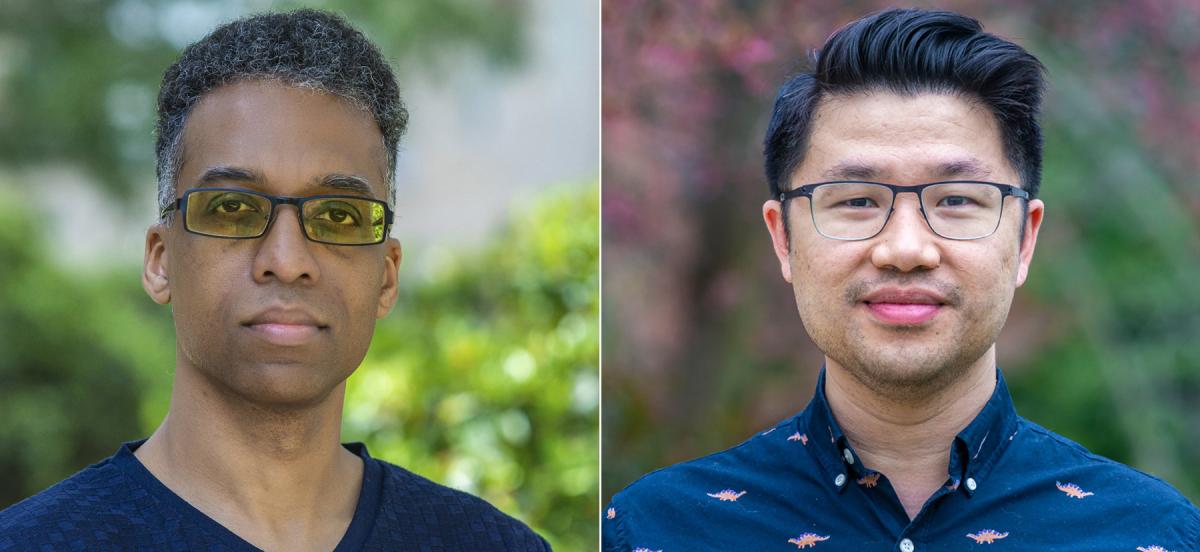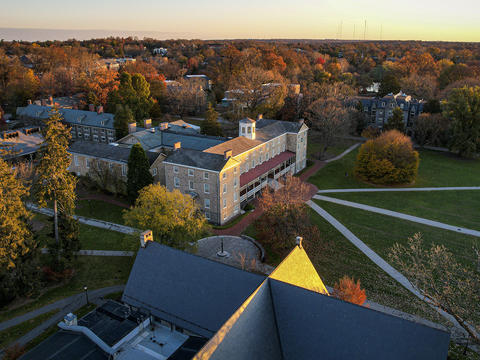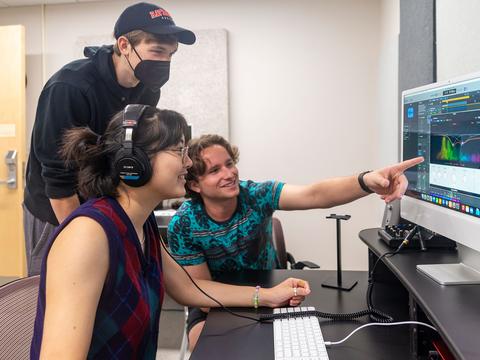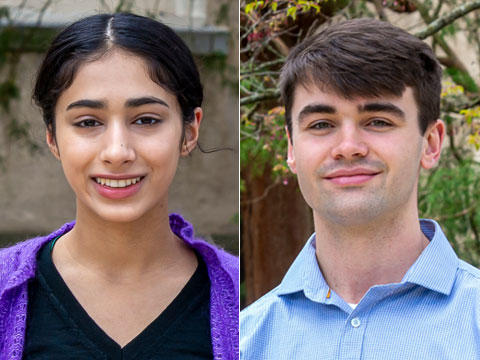Alvin Grissom II and Ryan Lei Win NSF Award

Assistant Professor of Computer Science Alvin Grissom II (left) and Assistant Professor of Psychology Ryan Lei are collaborating on interdisciplinary research funded by the National Science Foundation. Photos by Patrick Montero.
Details
The assistant professor of computer science and the assistant professor of psychology are collaborating on interdisciplinary research to understand artificially generated faces and the racial bias of how they are perceived.
Advances in machine learning have made lifelike artificial human faces possible. You may even have seen such faces, made with what is known as General Adversarial Networks, or GANs, in “deepfake” videos on the internet, for example. A new interdisciplinary collaboration between two Haverford scientists seeks to understand not just how these fake faces are created, but also how they are perceived by others.
Assistant Professor of Computer Science Alvin Grissom II and Assistant Professor of Psychology Ryan Lei have earned a $296,325 grant from the National Science Foundation for this work. Their joint project, "EAGER: DCL: SaTC: Enabling Interdisciplinary Collaboration: Evaluating Bias In The Creation and Perception of GAN-Generated Faces," combines Grissom’s expertise in computational linguistics and machine learning with Lei’s research on the acquisition of stereotypes and discriminatory behavior.
“In psychology, we often use faces as stimuli to try and understand human biases,” said Lei. “...These GAN-generated faces are hyper-realistic, so they can potentially be a great tool for psychologists to use in our research. But we still don’t have a good understanding of the properties of the generated faces and, in particular, how the GAN-generated faces might be racially biased. So, one goal of this project is to better understand the face-generation process; another is to examine whether there is any racial bias in how people perceive these hyper-realistic, but ultimately fake, faces.”
“Face-generation research can make some people nervous, as there has been no small number of terrible ‘AI’ products and bad research that are essentially automated physiognomy, pseudo-science with a racist history,” said Grissom. “Rest assured, that this is not what we are doing.”
This grant will make possible the purchase of new, powerful computer equipment for running GANs, as well support for undergraduate student researchers who will be involved in the project. Three current students—Ryan Trotter ’23, Yikang Lin ’23, and Matt Gusdorff ’24— are already participating in this work and plan on making it the basis for their senior theses. However, Grissom and Lei say that there is still space on the research team, and encourage interested students across departments to be in touch.
The funding comes from the NSF’s Early-Concept Grants for Exploratory Research (EAGER) program, which is designed to foster novel, excellent interdisciplinary research in its Secure and Trustworthy Cyberspace (SaTC) program to be carried out in collaboration between computer scientists and social scientists. This project is the first interdisciplinary project of its kind for Lei, though Grissom says that the nature of his work means he is regularly collaborating with researchers in other fields, from linguistics and computer science to psychology.
“To me, psychology has always been a discipline that integrates with multiple other fields, depending on the research questions one might be interested in,” said Lei. “In my subfield of developmental social cognition, this integration has become especially strong with computer science. So, I was excited when Alvin came to the College, reached out to chat about overlapping research interests, and then broached the idea of collaborating."



